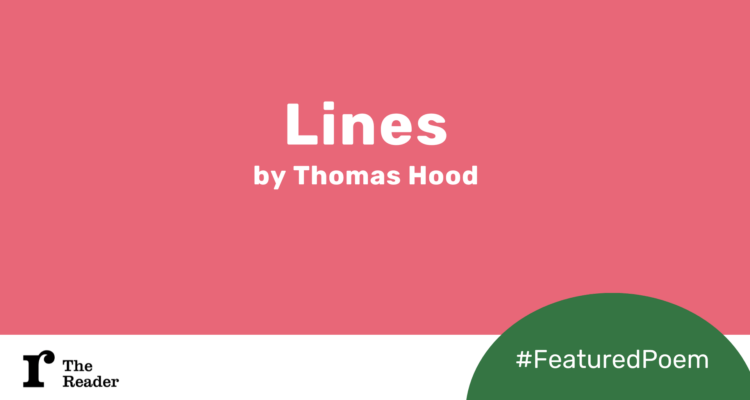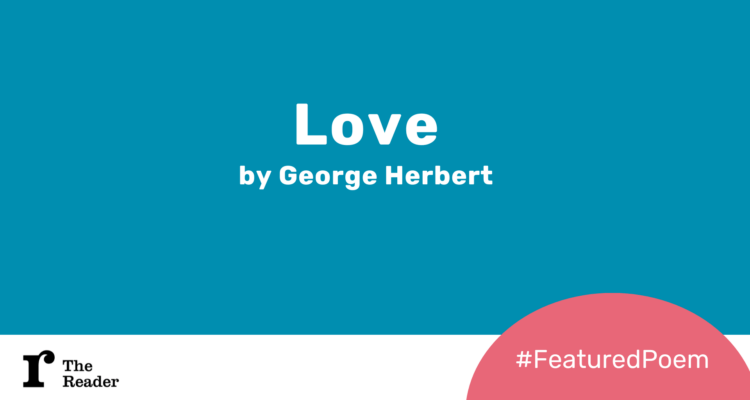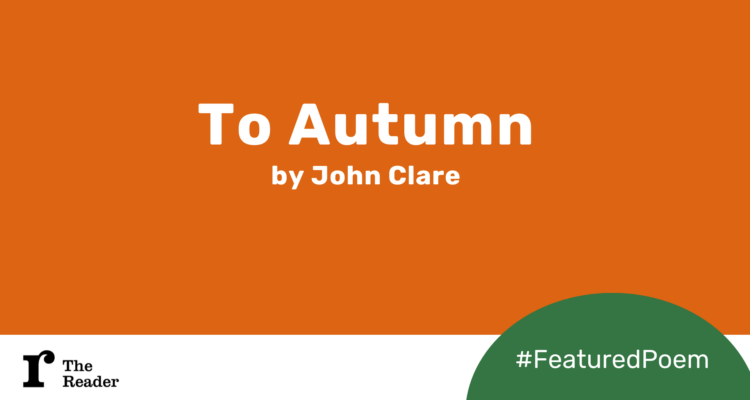Featured Poem: To a Poet by Claude McKay
This week in our special series of poems to help us through the testing times ahead, Grace Frame, The Reader's Head of Publications, shares her thoughts on To a Poet by Claude McKay.
To a Poet
There is a lovely noise about your name,
Above the shoutings of the city clear,
More than a moment’s merriment, whose claim
Will greater grow with every mellowed year.
The people will not bear you down the street,
Dancing to the strong rhythm of your words,
The modern kings will throttle you to greet
The piping voice of artificial birds.
But rare lonely spirits, even mine,
Who love the immortal music of all days,
Will see the glory of your trailing line,
The bedded beauty of your haunting lays.
Claude McKay
I wonder who McKay is thinking of when he addresses this ‘poet’. My first thought is that he could be thinking of himself, but he also seems to be reaching out to someone here, as if a poet is a kind of possible friend, someone that you might want to be able to speak to. Writing this poem just as the Harlem Renaissance was beginning, McKay would have been familiar with other living poets, and this poem does place us in the present, as if it is about someone who is still living, and current. But McKay, born in Jamaica in the late nineteenth century, had also begun his life as a reader by studying English poets as old as John Milton, Alexander Pope and the later Romantics. I wonder if he also still has them in mind.
There is an easy rhythm to the poem, and it seems to unfold in rather a straightforward way. But there is a challenge in here I think about what voices we listen to, or allow to be heard. The poet’s job is risky, because their work might not appear to gather any attention, and yet on the other hand the poet himself seems subject to attack and silencing by ‘the modern kings’. Who might they be? Agents of control in some way? Promoters who have another agenda - ‘the piping voice of artificial birds’ - to push or to sell?
It is only because of the existence of ‘rare lonely spirits’ that there is hope for the poet. It is fascinating, isn’t it, that that word ‘lonely’ has to be there, and is the answer, not the problem, in this poem. The ‘lonely’ are not the members of the mass groupings in the first and second verses, although lonely people might well join those crowds. In fact, there is perhaps no distinct grouping here for the lonely. Instead, I get the sense that it is when we are most able to inhabit this part of ourselves, that we become most open to the voice of the poet. Until then, we might not be aware of any need for it; we might be quite happy with the modern kings. But there is something waiting for us when we do reach that place, as the end of the poem suggests. ‘The bedded beauty of your haunting lays’: there is both beauty and haunting in a poet’s songs - something that satisfies and something that still yearns.
Share
Related Articles

Featured Poem: Lines by Thomas Hood
Our Featured Poem for February is 'Lines' by Thomas Hood, selected and read by Frances. Lines by Thomas Hood Let…

Featured Poem: Love by George Herbert
The Featured Poem for January is Love by George Herbert and is from the anthology Stressed, Unstressed and is read by…

Featured Poem: To Autumn
For November's Featured Poem, Julie is reading 'To Autumn' by John Clare To Autumn by John Clare Come, pensive…


